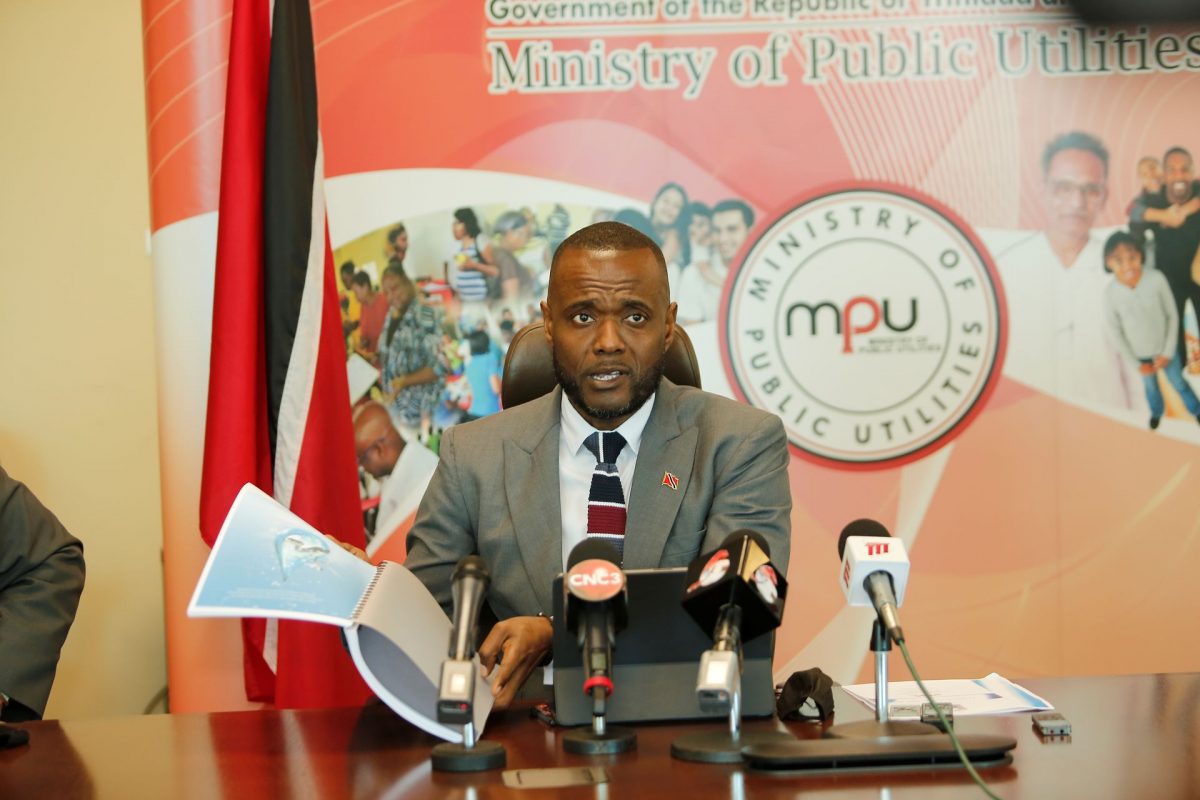(Trinidad Guardian) A specially-commissioned report into the operations of the Water and Sewerage Authority (WASA) has found the cash-strapped entity plagued by financial mismanagement, a lack of managerial accountability, corruption, parallel operations by representative trade unions and a general refusal by employees to work.
The findings, which were contained in a 135-page report, was dissected by Prime Minister Dr Keith Rowley on Monday during a special sitting of the Cabinet.
Last September, Rowley appointed a Cabinet Sub-Committee chaired by Public Utilities Minister Marvin Gonzales, to look into WASA’s operations and come up with a comprehensive plan to turn around the state-run organisation.
Included in the committee were ministers Donna Cox, Pennelope Beckles, Stuart Young, Camille Robinson-Regis and Franklin Khan.
On December 11, 2020, Rowley received a copy of the report which Guardian Media was able to obtain.
In it, the committee examined issues such as management levels, income and expenditure, employees allowances, overtime expenditure, desalinated water purchases, water production, financial analysis, and debt profile.
Under the headline “Current Model,” the report stated that WASA has become an unwieldy, overstaffed, unproductive, and unresponsive organisation that has deteriorated and is no longer efficiently serving citizens.
It stated, “There is a general lack of accountability pervading the organisation and the existing organisational culture is the very antithesis of a highly productive organisation.”
Over decades, the report stated, efficiency was sacrificed for political patronage, and management accountability exchanged for industrial stability, resulting in an organisation in which there is little correlation between the contents of collective agreements and the realities of providing a reliable service to the national population at an affordable and acceptable cost to the taxpayers.
WASA operating blindly
It also stated the authority has been operating blindly and noted an absence of credible information in key areas such as WASA’s customer database, liabilities, staffing levels, payables location of transmission and distribution main.
The committee concluded, “The dysfunctional inherent in WASA are so deeply entrenched that, in its current form, the organisation is incapable of effectively satisfying its customers’ demands and the State’s mandate. Continuation of the current WASA model will therefore generate further decline and exacerbate the downward spiral in all aspects of the authority’s operation.”
The report added maintaining the status quo leaves the state in the “unsustainable and unacceptable position of continuing to fund, to the tune of almost $2 billion annually, an organisation that lacks the ability to transform itself.”
It said it will be an exercise in “gross futility to ignore all the exigencies associated with attempting to operate/create an industrial entity by bringing together seven government-operated water production facilities into one legal and organisational framework. This model has long outlived its usefulness and to continue conducting proverbial surgery on WASA in the hope that it would become efficient would be an exercise in futility.”
It stated WASA’s intractable issues have manifested itself in the form of operational and service failures where hundreds of thousands of citizens are unable to get either a reasonable supply of water or a suitable and timely response to their plight.
“WASA’s executives are not held to account, deploy very limited controls, are not effectively regulated, apply very antiquated, technology-deficient system and are generally devoid of an understanding of WASA’s role, relationship and the consequences of the utility’s actions on the national population.”
Another issue, the committee raised was water lost through leaks and theft which is estimated within the range of 40 to 50 per cent.
This problem, the report stated has led to public mistrust in WASA, an unwillingness of some customers to pay even one of the world’s cheapest water rates and WASA being unable to survive without significant Government funding.
With this in mind, the sub-committee recommended, “that the only practical solution lies in the incremental dissolution of WASA in its present configuration and its replacement with the creation of a Water Management Company within a revised water sector model.”





